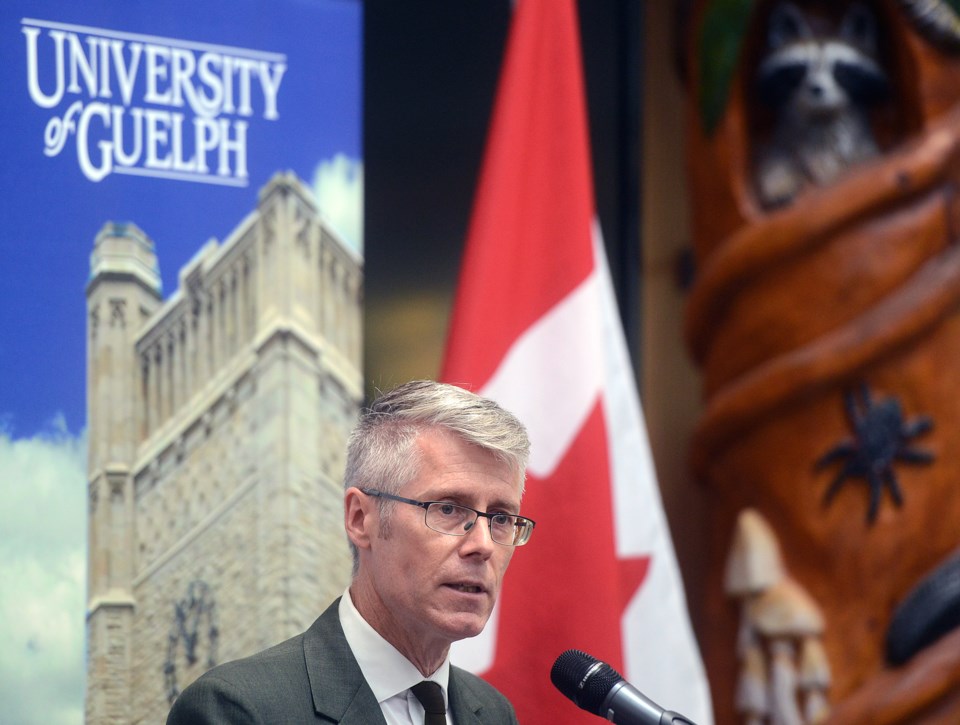A record infusion of funding for science, health and humanities research announced this week by the federal government will be a boon to the University of Guelph and the city as a whole, says U of G’s head of research.
The 2018 federal budget commits almost $4 billion to Canada’s research system, including $925 million over the next five years for the three main research granting councils.
The budget is good news for Guelph, which is already a leader in the knowledge creation space, said Malcolm Campbell, U of G’s vice-president of research.
“It’s going to make a very significant difference after, frankly, years of under investment. This is really an adjustment setting the balance of investment in research on the right track,” said Campbell. “This has provided us with fuel to do our jobs to the full extent.”
Of particular interest to the university, said Campbell, is the recently-announced Strategic Innovation Fund (SIF), which focuses on business research and development projects over $10 million. The budget said supporting those larger projects can lead to significant job creation and prosperity for all Canadians.
Campbell said he envisions the SIF as a mechanism to create liaisons between the university and the agri-food sector to create new business opportunities and to make existing businesses more competitive.
In 2016-17, U of G received just over $22.5 million of research funding from federal government departments in Canada, which accounts for about 16 per cent of its overall research funding.
Campbell notes the research funding announced in the budget is not limited to science, but also included social sciences and the humanities.
Last year, the government of Canada received the Naylor Report, a comprehensive report of the state of fundamental science in Canada.
Although not all of the recommendations of the report were put in place in the budget, Campbell said the federal government’s decision to boost research funding is about as good as could have been expected.
“It is clear that this government has listened to this report and gone along way to addressing its recommendations,” said Campbell.
The university is one of Guelph’s largest employers, notes Campbell, and the research it conducts touches just about every facet of life in Canada — from foodstuffs to innovative technology.
“This budget is good news because it allows us to really be the beacon that we can be leaders in that knowledge creation space,” he said.
In interviews about the 2018 federal budget, Mayor Cam Guthrie, MP Lloyd Longfield and Kithio Mwanzia, president of the Guelph Chamber of Commerce all lauded the increase in science funding as being something beneficial to the city of Guelph.
“It’s really trying to get us back to where we need to be. The previous government had cut back research funding and we had a pretty big hole with that,” said Longfield.
